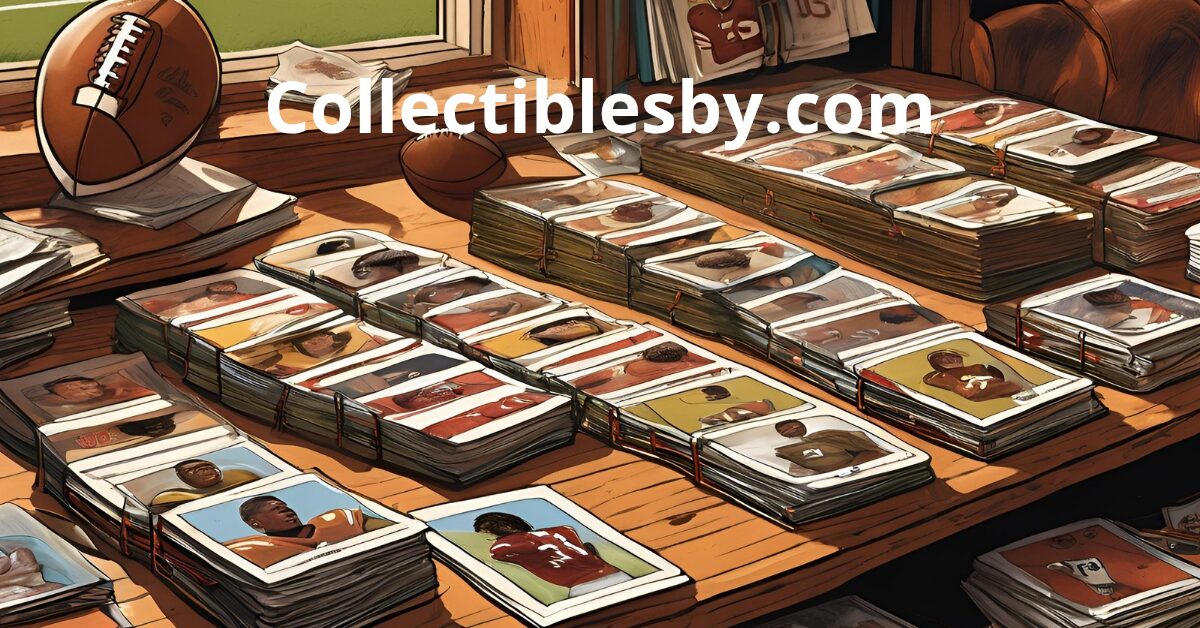The thrill of ripping open a fresh pack, the anticipation of uncovering a hidden gem, the satisfaction of adding a prized card to your collection – these are the driving forces behind the enduring popularity of buying football cards. Whether you’re a seasoned collector or just starting out, the world of football card buying offers a diverse and exciting landscape, with options to suit every budget, collecting style, and level of experience.
From local card shops to online marketplaces, the avenues for acquiring football cards are numerous and varied. Understanding the different options, navigating the nuances of card values, and developing a strategic approach are essential for maximizing your collecting experience and building a collection that brings you joy and potentially financial reward.
Navigating the Buying Landscape:
The modern collector has a plethora of options when it comes to buying football cards:
- Local Card Shops: The quintessential hub for card enthusiasts, local card shops offer a personalized experience, knowledgeable staff, and the opportunity to connect with fellow collectors. These shops often host events, like card shows and autograph signings, creating a sense of community.
- Hobby Boxes and Retail Packs: Available at card shops, big box stores, and online retailers, hobby boxes and retail packs offer the thrill of the unknown. Ripping open packs is a core part of the collecting experience, offering the chance to discover rare inserts, autographs, and rookie cards.
- Online Marketplaces: Platforms like eBay, COMC, and Topps.com provide access to a vast inventory of cards, from vintage classics to modern releases. These marketplaces offer competitive pricing, a wide selection, and the convenience of shopping from home.
- Online Breakers: Breakers offer a unique way to buy cards, allowing collectors to purchase a share of a hobby box or case. The breaker then opens the packs live on stream, distributing the cards to the participants. This offers a social and interactive collecting experience.
- Card Shows and Conventions: These events bring together collectors, dealers, and industry professionals, offering a vast selection of cards, opportunities for trading, and the chance to meet fellow enthusiasts.
- Direct from Collectors: Online forums, social media groups, and trading platforms allow collectors to connect and buy cards directly from each other. This can be a great way to find specific cards, negotiate prices, and build relationships with fellow collectors.
Understanding Card Values:
Before embarking on your card-buying journey, it’s crucial to understand the factors that influence card values:
- Rarity: Cards produced in limited quantities, whether due to a short print run, a special insert, or a unique error, are inherently more valuable. Rookie cards, particularly those of Hall of Fame caliber players, are often highly sought after due to their limited availability.
- Condition: The physical state of a card plays a crucial role in its value. Cards in pristine condition, with sharp corners, crisp edges, and flawless surfaces, command a premium. Grading services, like PSA and Beckett, provide objective assessments of card condition, assigning numerical grades that significantly impact value.
- Player Popularity: The star power of the player featured on the card is a major driver of value. Cards of legendary players, iconic quarterbacks, and record-breaking athletes are naturally more desirable. Current performance also plays a role, with cards of rising stars and MVP contenders experiencing surges in value.
- Historical Significance: Cards associated with significant moments in NFL history, such as Super Bowl victories, record-breaking performances, or iconic plays, hold special value. These cards capture a piece of the sport’s legacy, making them desirable to collectors who appreciate the historical context.
- Market Demand: Ultimately, the value of a card is determined by what collectors are willing to pay. Market trends, economic conditions, and the overall popularity of the hobby can all impact card values.
Developing a Buying Strategy:
A well-defined buying strategy can help you maximize your collecting experience and build a valuable collection:
- Set Collecting: Focusing on completing specific sets can be a rewarding and organized approach. This allows you to track your progress, appreciate the design and theme of the set, and potentially increase the value of your collection as a whole.
- Player Collecting: Building a collection around a specific player, team, or era can be a passionate and personalized approach. This allows you to connect with your favorite players and teams, and potentially acquire valuable rookie cards and autographs.
- Investment Collecting: For collectors who view their cards as investments, a strategic approach is essential. Researching market trends, identifying undervalued cards, and focusing on high-grade collectibles can maximize potential returns.
- Budgeting: Setting a budget is crucial for responsible collecting. Determine how much you’re comfortable spending on cards, and stick to your budget to avoid overspending.
- Research: Before making a purchase, research the card’s value, its rarity, and its condition. Utilize price guides, online marketplaces, and collector forums to gather information.
- Patience: Building a valuable collection takes time and patience. Don’t rush into purchases. Wait for the right deals and focus on acquiring cards that fit your collecting goals.
- Networking: Connect with other collectors, dealers, and industry professionals. Attend card shows, join online forums, and participate in social media groups to expand your network and knowledge.
Tips for Smart Buying:
- Buy the Grade, Not the Player: When investing in cards, prioritize condition over player popularity. High-grade cards, even of lesser-known players, tend to hold their value better over time.
- Beware of Counterfeits: Be cautious when buying cards online or from unfamiliar sellers. Counterfeit cards are prevalent in the market, so it’s essential to authenticate your purchases.
- Inspect Cards Carefully: Before completing a purchase, carefully inspect the card for any signs of damage or wear. Even minor imperfections can significantly affect value.
- Negotiate Prices: Don’t be afraid to negotiate prices, especially when buying from dealers or at card shows.
- Diversify Your Collection: Diversifying your collection can help mitigate risk and potentially increase overall value. Don’t put all your eggs in one basket.
- Enjoy the Process: Buying football cards should be an enjoyable experience. Don’t get too caught up in the investment aspect. Focus on building a collection that you’re passionate about and that brings you joy.
The Future of Buying Football Cards:
The future of buying football cards is likely to be shaped by technological advancements and the evolving preferences of collectors. Digital trading cards, with their unique features and verifiable ownership, are poised to play a significant role in the future of the hobby.
The focus on high-end, limited-edition cards is also likely to continue, as collectors seek out premium collectibles. And the growing popularity of online marketplaces will continue to facilitate the buying and selling of cards, making the hobby more accessible to collectors worldwide.
However, the enduring appeal of physical cards is unlikely to diminish. The tactile experience of holding a card, the nostalgia associated with collecting, and the sense of connection to the game will continue to draw collectors to the physical realm.
Ultimately, the future of buying football cards will depend on the passion and dedication of collectors, the innovation of card manufacturers, and the enduring popularity of the game itself. As long as the NFL continues to captivate fans, buying football cards will remain a thrilling and rewarding pursuit, offering a unique blend of passion, history, and investment potential.

